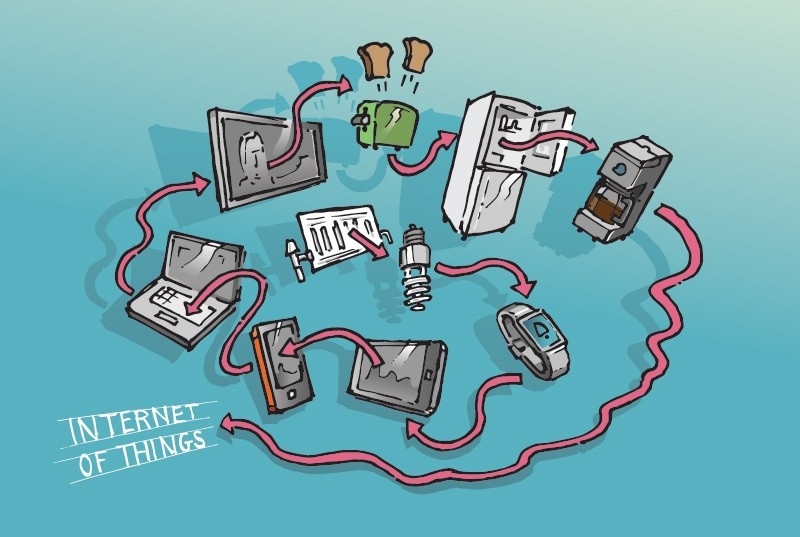Trying to think about one of the hottest trends sweeping the tech industry---IOT, or the Internet of Things---has me a bit befuddled, to be honest. On the one hand, I understand the conceptual potential of a world where everything is connected, and where we're able to glean a wealth of useful insights from the data pumped out by the devices that form part of this all-encompassing network.
On the other hand, the nearly overwhelming technical, security, and legal hassles of making all the connections work in this vision of an Internet-on-steroids seem pretty difficult to overcome. Part of the problem is that, in many ways, talking about the Internet of Things as a conceptual whole is a useless exercise. There's no real Internet of Everything, or Internet of Things (why does the Internet need "things" anyway?), but instead a variety of specific applications that involve putting intelligence, sensors and connectivity into certain devices that can perform specific, useful functions.
Another problem is that there's a tendency to overanalyze and overcomplicate what IOT applications actually are or should be. At this point, I'd argue that many people perceive IOT as being an extraordinarily complex combination of devices, services, business models, value equations, etc. In fact, the big IOT visions that many vendors and analyst firms are touting seem dependent on creating this vague sense of something that, I'd argue, doesn't necessarily amount to anything.
The big IOT visions that many vendors and analyst firms are touting seem dependent on creating this vague sense of something that, I'd argue, doesn't necessarily amount to anything.
In some cases, these visions are also based on false presumptions around the inherent value of data and connectivity. I believe we need to think about some of these key premises in a different way. Specifically:
- Data does not equal information
- Not all information is actually useful
- Connectivity doesn't inherently make something better
On their own, most of these statements are fairly obvious, yet it seems like many early efforts to create products that fit into the Internet of Things or Internet of Everything world seem to ignore at least one (if not all) of these precepts. How many different "smart objects" have we heard or read about lately that just make you scratch your head wondering what they're really good for or who would actually use them?
Similarly, much of the vision around the opportunities for Internet of Things-type applications ignores these basic principles. To be clear, data, connectivity, sensors, and embedded intelligence can be incredibly valuable, and there are some significant business opportunities in the commercial and consumer markets to create products and services that leverage these capabilities. However, the fundamental driving principle that needs to be at the heart of these efforts is what I call "useful simplicity." There needs to be a clear benefit to end users that helps them achieve something genuinely useful in a simple, convenient way.
Perhaps because that idea is so obvious, I often feel there are efforts made to obfuscate these basic principles and complicate ideas to make them sound more sophisticated. I guess the justification is that this will provide a more complex business model, and therefore higher, value.
To me, both the challenge and opportunity behind IOT-type products and applications is crystal clear. Companies needs to motivate potential users to purchase products or services because they offer a simple, clear, useful value. Unfortunately, in the often-muddled world of IOT, that's not always as easy as it sounds.
Bob O'Donnell is the founder and chief analyst of TECHnalysis Research, LLC a technology consulting and market research firm that provides strategic consulting and market research services to the technology industry and professional financial community. You can follow him on Twitter @bobodtech. This article was originally published on Tech.pinions.
